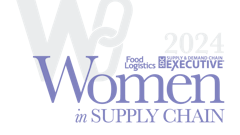
The effects of inaccurate product information across the supply chain are tremendous, particularly in the healthcare industry where its implications can mean the difference between wellness and illness, life and death. In recent years, the impact of flawed product information ricocheted through the healthcare supply chain, resulting in significant challenges to the industry, driving increases in operational costs and impacting the quality of patient care.
Healthcare reform, increased transparency and traceability requirements, and poor data quality are just a few of the elements that are contributing to greater costs of doing business for healthcare organizations. In the meantime, product recalls, market withdrawals and safety alerts weakened government and consumer trust in the industry, resulting in greater scrutiny and heavier governmental regulation. In an industry that is global by nature, the necessity for a standardized approach to supply chain management is imperative to keep costs down, and ensure the safety and well-being of end recipients.
Global regulatory mandates, such as the United States Federal Drug Administration’s (FDA) Unique Device Identification regulation (UDI) and the Drug Quality and Security Act (DSCSA), spurred a shift in the foundation of how healthcare organizations are doing business. In this highly regulated environment, we are seeing leading healthcare organizations beginning to recognize the necessity of product data management strategies and systems with a focus on implementing systems and processes to streamline supply chain efficiencies and manage rising costs.
The FDA’s UDI regulation requires that all medical devices sold in the United States be labeled with a unique device identifier and corresponding product information, which must be submitted to the FDA’s Global UDI Database (GUDID). The regulation is intended to ensure the availability of accurate and reliable information for providers, patients and members of the public, enabling visibility and transparency to recipients and providers of care. As the beacon of change, UDI is driving the healthcare industry towards standardization. This is a response to:
- The necessity for increased visibility and traceability to support product recalls.
- Market withdrawals and improved patient safety.
Taking a page from the consumer packaged goods (CPG) industry’s playbook, healthcare organizations are embracing the challenge and seizing it as an opportunity to transform the way the industry does business. Mirroring CPG’s adoption of GS1 Standards, the standards behind the universal purchase code (UPC), the item identification and barcode system seen on all consumer products, and the Global Data Synchronization Network (GDSN), the primary methodology used by the CPG industry to aggregate and distribute product information, leading healthcare organizations are calling for the application of these principals to the healthcare industry at a global level. Driven by the UDI mandate, leaders in the healthcare industry are leveraging this opportunity to streamline their internal systems, and integrate standards adoption and data synchronization via the GDSN.
Serving as the pioneer to this approach, one leading global medical manufacturer recognized the implication that the UDI regulation would have on its operations and began evaluating its systems with 1WorldSync two years in advance of the first compliance deadline. Requiring a global solution that would support all categories of medical devices, this leading manufacturer engaged 1WorldSync to identify an efficient and quality product information distribution methodology via a uniform deployment. To ensure that the organization delivered high-quality product information to its trading partners and the FDA, this company took a leading role in the adoption and utilization of GS1 Standards, and the GDSN within the organization. The benefits and efficiencies it realized through its innovative approach to compliance serves as a benchmark and model for the healthcare industry as a whole.
In support of compliance to regulatory initiatives, such as UDI, and the increased need for supply chain visibility, proactive and innovative strategies are required to ensure businesses are prepared to meet global market requirements and recipient expectations. With regulatory mandates and the demand for greater transparency here to stay, global organizations are utilizing solutions to ensure that their systems support a consolidated approach for aggregating, managing and disseminating accurate product information via a uniform and scalable model. This includes establishing organizational commitment to data governance and data quality programs that enable trusted product information exchange at a global level.
This shift in the global healthcare landscape is laying the foundation for a movement towards global industry harmonization, creating a significant opportunity for healthcare organizations to engage in greater coordination with commercial sectors, such as group purchasing organizations (GPOs), distributors and providers. Product information exchange via the GDSN can achieve business and industry advantages, including streamlining internal systems, improving data accuracy and data quality, and ensuring the exchange of trusted product information between manufacturers, recipients, distributors and GPOs.
Recognizing the impact that standardization of product information exchange can have on industry enablement, we strongly recommend the utilization of the proven and successful framework of GS1 Standards and the GDSN to improve supply chain management, and support product risk and compliance in the healthcare industry. The transformation towards a value-based care industry model is resulting in foundational changes and challenges for the healthcare supply chain, and organizations need to define, establish and implement proactive and innovative overarching strategies to successfully adapt.
Nick Manzo is the global senior director of industry development and leads the global expansion of 1WorldSync’s capabilities in the healthcare industry.




























